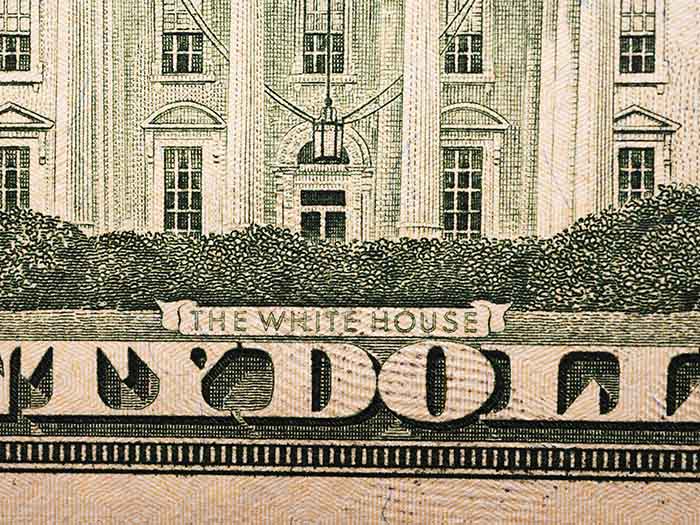Even before his election, President Trump made his vision for transforming US foreign policy clear. Since taking office, he has actively engaged in foreign policy battles, primarily driven by his agenda. But let’s take a quick look at the necessary steps he has taken in the two weeks since taking office and the chaos he has caused at the start of Mr Trump’s second term.
Author: Szilárd Szélpál
To briefly summarise, his most dramatic measures: a 25% import tariff on various goods from Canada and Mexico, initially suspended for 30 days but now in effect—the imposition of a 10% import tariff on China with a similar objective. Declaring a security policy claim on the Panama Canal and the whole of Greenland and exerting economic pressure on Canada to become a member state of the US. In violation of international law, the seizure of the entire territory of the Gaza Strip, declarations to displace the local Palestinian population, and the construction of two possible US military bases in Cyprus, with a military port. Providing military and financial support to Ukraine in exchange for rare earth metals to continue the war. Trade pressure against the EU, with import duties on European products. Taiwan offers companies interested in specialized microchip production the possibility of preferential relocation to the US. Tacit acceptance of the One China principle favored by the Beijing government by devaluing Taiwan’s economic and geo-strategic role to date and no longer treating the island’s sovereignty as a top priority.

Many of the events of the last two weeks are unprecedented in recent international politics, especially with the U.S. President leading them. Numerous articles and reports highlight how such tariff wars have historically triggered wars and global economic crises, often leaving the initiating countries in severe monetary and political turmoil. Mr. Trump is the only U.S. President who, following his ‘hit first, ask questions later’ policy, initially engages in aggressive rhetoric before turning to diplomacy—though even then, he insists on a force-based approach to negotiations.
Mr. Trump’s strong emphasis on power in his leadership and communication style can be analyzed from two perspectives. From a sporting perspective, I compare this to José Mourinho. He arrived in the UK after leading FC Porto to a Champions League victory in the mid-2000s and went on to coach Chelsea, one of England’s most prestigious football clubs. The club had become owned by a Russian oligarch, Mr Roman Abramovich. From the moment he arrived, Mourinho commanded the full attention of the British press, strategically using it to his advantage. Much was made at the time of his arrogance and condescension towards the media, his lack of respect for his opponents and their coaches, his harsh words to the FA, his cruel honesty in his criticisms, and his immediate rejection of criticism directed at him or his team. I remember once he made a human statement after winning his umpteenth Premier League title with Chelsea that he communicates to the outside world in this way deliberately because he knows it’s the only way he can distract the press from his players, their problems, their issues and the shortcomings of his team, especially if he doesn’t have the right squad. I believe this is the strategy Mr. Trump now employs. It is diverting public and world press attention from something of the utmost importance, which is a very risky omission for the United States.
Another way to assess the President’s actions is through psychology. A common aspect of human behavior is the tendency to compensate for character flaws or insecurities through exaggerated actions. This phenomenon is explored in various psychological theories, all focused on maintaining self-image and emotional balance. One of the most frequently cited approaches is that of Alfred Adler, who described the phenomenon of the inferiority complex, whereby a person tries to compensate for self-perceived deficits by increased ambition, excessive self-assertion, or dominant behavior. In this case, the individual may feel that their weakness in a particular area threatens their social status or self-image and develop behaviors that suggest strength, assertiveness, or superiority. A similar phenomenon can be observed in people with narcissistic personality traits, who often try to cover up their insecurities by strong self-aggrandizement, over-confidence, and devaluing others. For them, gaining recognition and power is crucial, as it helps maintain an appearance that conceals a fragile self-worth. Other forms of compensation include excessive extroversion, where a person overacts socially to mask anxiety and insecurity. Sometimes, the person tries to prove their ability or strength to such an extent that an opposite attitude compensates for the original problem. This may be particularly true in hypermasculine behaviors, where a man tries to cover up his fears or weaknesses by overacting dominantly and aggressively. These behavioral strategies are often unconscious, arising naturally from deeper psychological mechanisms. Compensation allows the individual to avoid confronting internal conflicts but may also negatively impact self-awareness and social relationships.
Considering all aspects, I believe that the seemingly erratic foreign policy decisions and their communication are part of a deliberate strategy. However, media coverage and public discourse suggest that the world also confronts a deeper psychological issue. Yet, the crucial questions remain: why is the 47th President of the USA re-entering international politics in this way, and how will it achieve the ‘MAGA’ (Make America Great Again) vision? This brings to mind an experience I had in Paris. When I was a student in the Geography Department of the Sorbonne University in Paris, in the Quartier Latin, I had to give my fellow students a small lecture on geopolitics. I chose to focus on rare earths because, at the time, the iPhone—then in its third generation—had revolutionized the mobile phone market. I believed this groundbreaking technological shift would have significant supply chain implications tied to geography and geopolitics. Around the same time, news briefly surfaced about China’s strategic investments in African rare earth mining companies, securing long-term mining and trading rights. I believe Mr. Trump is acting with a deep understanding of this geopolitical reality.
The Silicon Valley tech leaders who supported Trump’s return to office recognize that artificial intelligence is ushering in a new era of economic and technological transformation that depends on vast quantities of rare earth materials. These elements are essential for AI-driven industries, from information communications and cloud computing to cryptocurrencies, real-time internet services, and space-based technologies. Why? The high-tech industry needs a lot of micro and nanochips for modern medical devices, nanorobots, classical robotics, various drone technologies, modern satellite navigation systems, and space technologies, not to mention their military applications. So, it is clear that Silicon Valley has realized that it will only be able to continue to guarantee its global market dominance if the rare earth mining and trading industry, which is almost 100 percent dominated by China globally, is removed as a critical point in its supply chain. This realization shifted economic power dynamics, contributing to the decline of Wall Street-backed interests in the presidential election, as their preferred candidate was the Democratic nominee.
The only viable approach is for the new presidential administration to demand compliance from targeted countries firmly and strategically. The goal is not to eliminate but to significantly reduce Silicon Valley’s reliance on China in the long run. This explains the strategic interest in Canada and Greenland, the pressure on South Africa to reconsider its land reform policies, and Taiwan’s significance from economic to purely military strategy. This explains Mr. Trump’s urgent push for these resources—strategically concealed from public scrutiny—because the U.S. is at a critical turning point. If it fails to act now, China could cement its position as the world’s economic leader, quickly followed by military supremacy. So, after all this, the question remains: can America indeed be great again? The answer is uncertain. Certainly not at the level it once held in the late 20th century. The key difference is that China is not the Soviet Union, which collapsed under economic pressure and a star warfare arms race centered on space and military technology. Unlike the Soviet Union, which was never a genuinely stable or adaptive society, China is highly organized, continuously learning, and strategically improving its industries. It innovates faster, markets products more efficiently, and optimizes economic growth in ways the USSR never could. For instance, while Western car manufacturers typically take 3-4 years to develop, test, and launch a new model, Chinese companies accomplish the same in just two years—without sacrificing quality. Chinese manufacturers not only produce high-quality vehicles, but their technology and software support are on par with Western competitors—though often designed with a distinctly different approach tailored to their market and production philosophy.
And what progress has Europe and the EU made so far? Almost none. The Commission’s proposal to increase competitiveness operates with a bit of a naphthalene-scented solution without disturbing the hotspots that could lead to developing an accurate, competitive European tech sector and a stable supply chain in the EU. Unfortunately, Brussels bureaucrats seem exhausted from constant battles with Member States. They lack the workforce and expertise to develop innovative, forward-looking, visionary, and legally viable policies. Nothing will change until Europe acknowledges its potential to move beyond being the world’s second-largest consumer and actively assert itself as a global political, military, and economic force. This is being driven not only by the leaders of the Member States but also by the Commission itself, which sees its main task as administration and regulation rather than drawing up a coherent policy that could be implemented within the current political framework. Europe now resembles a child who refuses to multitask, insisting on solving one problem at a time before addressing anything else. That is not how the world works. No legal system has ever been perfect, nor will one ever be. Yet, history shows that pragmatic legal frameworks have enabled nations to reshape their destinies, achieve remarkable success, and even build empires.
Cover photo credit: Envato

Szilárd Szélpál served as an environmental expert in the European Parliament from 2014, where he utilized his expertise to influence policy-making and promote sustainable practices across Europe. In addition to his environmental work, Szilárd has a deep understanding of foreign affairs, offering strategic advice and contributing to the development of policy initiatives in this field.



